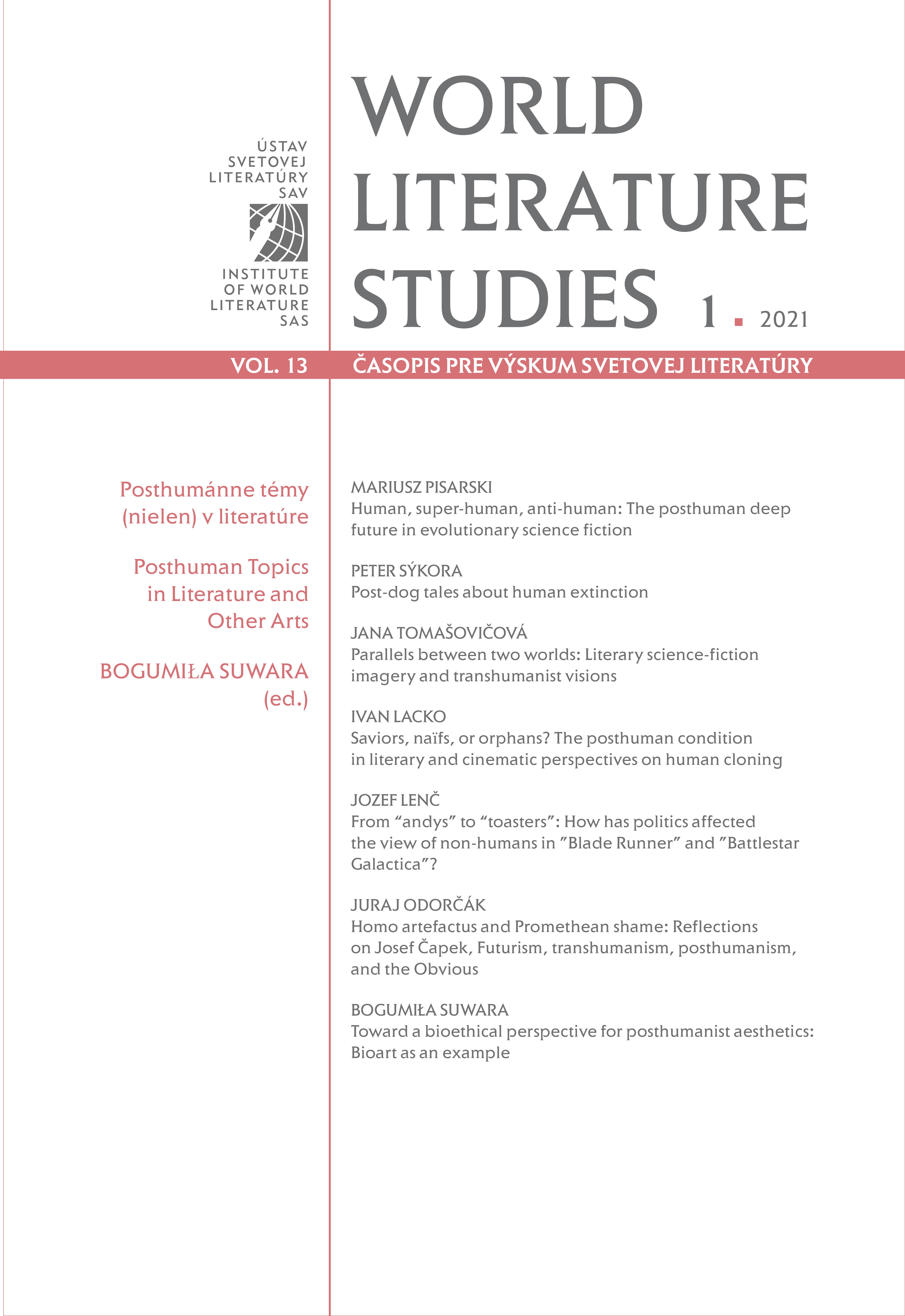Human, super-human, anti-human: The posthuman deep future in evolutionary science fiction
Human, super-human, anti-human: The posthuman deep future in evolutionary science fiction
Author(s): Mariusz PisarskiSubject(s): Language and Literature Studies, Studies of Literature, Ethics / Practical Philosophy, Comparative Study of Literature, Contemporary Philosophy, American Literature
Published by: SAV - Slovenská akadémia vied - Ústav svetovej literatúry
Keywords: Speculative fiction; Science fiction; Comparative studies; Evolution; Transhumanism; Posthumanism; Human nature
Summary/Abstract: Posthumanist visions of the future do not venture further ahead than a few hundred or a few thousand years at most. It is within this near future that most scenarios of technological singularity and the enhancement of the human into an H+, or a posthuman, are projected. This paper reflects on visions of much more distant futures found in evolutionary speculative fiction and science fiction, from J.B.S. Haldane (1927) through to Adrian Tchaikovsky (2019). From the vantage point of thousands (or millions) of years, the forthcoming era of minduploading, designer babies, and technological immortality as envisioned in the transhumanist utopias of Hans Moravec amount to short episodes in a long cycle of evolutionary progress matched by planetary catastrophes. Such a perspective offers a more general reflectionon the philosophical and cultural implications of a “creative evolution”, the nature of humanity, and humans’ place among other species. The transhumanism agenda, initiated by Julian Huxley in the form of a call to arms for the “betterment of humanity” by existing, emerging, and speculative technologies, does not emerge as a retrograde reinstatement of the compromised ideals of Enlightenment, but rather as the sine qua non for human survival in the face of the heat death of the Sun, the eruption of a super-volcano, and any other existential risk. Human ingenuity, reflected in advanced biotechnology, space travel, technological enhancements turns out to be the only guarantee of life on Earth and beyond it. As such, this comparative study of literary examples of possible courses of human history proves that reflections on the far future are capable of healing current discursive divides between posthumanist and transhumanist, anthropocentric and anti-anthropocentric, and technophobic and technophilic approaches to our present.
Journal: World Literature Studies
- Issue Year: 13/2021
- Issue No: 1
- Page Range: 3-17
- Page Count: 15
- Language: English

